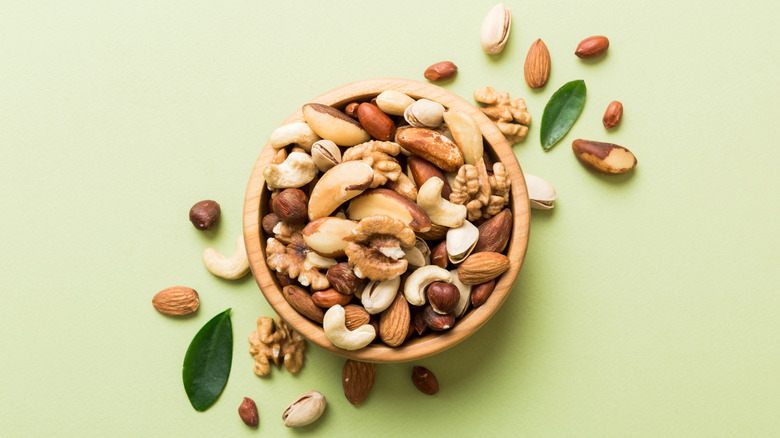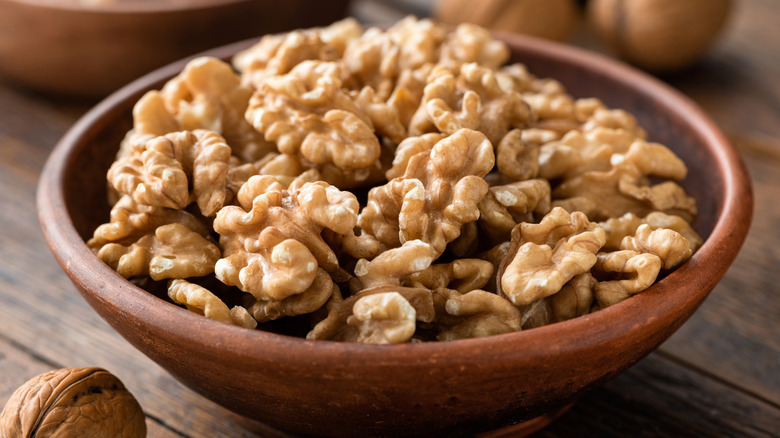The One Nut You Should Be Eating Before Bedtime
We may receive a commission on purchases made from links.
It's fair to say that tossing and turning in the dead of night is dreaded by just about everyone. In fact, sleeplessness is one of the most frustrating experiences in our daily 24-hour time spans, with seemingly nothing to help bridge the gap from wakeful to snoozing. But take heart: It's possible to bypass those highly marketed sleep aids and relaxation techniques floating around the infosphere. Just a handful of old-fashioned tree nuts could send you nodding toward the dream world, particularly walnuts.
Here's why: Walnuts in their natural state, nothing fancy added, contain one of the nine known essential amino acids that keep the human body humming and healthy. It's called tryptophan, and it helps facilitate the production of brain chemicals such as melatonin and serotonin — which in turn can make you sleepy and aid in regulating sleep patterns. The only way to get tryptophan into your system is by ingesting it, ideally through the simple act of consuming foods that contain it.
If the name tryptophan rings a bell, that's likely because of its well-known presence in meats, especially turkey and notably during the holidays. You may have seen Uncle Joe yawning on his way to a post-dinner nap, mumbling something like "here comes that turkey tryptophan!" There's a good bit of legitimacy in that, as turkey does contain high amounts of tryptophan compared to many other sources. But walnuts (available from brands like Fisher on Amazon) are much easier to incorporate into your daily routine, with no cooking or preparation required.
Not just walnuts for deep snoozing
In addition to the tryptophan in walnuts, other health-enhancing attributes of the nuts work in tandem to achieve better sleep. The presence of beneficial healthy fats, fiber, and high amounts of omega-3 in walnuts contribute to good health in general, which can result in better restorative sleep. That goes double if you're also avoiding things like sugar and saturated fat at night, which can lower sleep quality. The tryptophan is also known to ease anxiety, depression, and aggression, all things that can keep you awake at night.
Though walnuts are a super-trypto source, they're not the only types of nuts in play. Pistachios, cashews, peanuts, and almonds harbor impressive amounts of tryptophan, as do many varieties of seeds. Feel free to do some evening snacking on pumpkin, squash, chia, and flax seeds to trigger relaxation and sleepiness. Shoot for about two hours before heading to bed.
It also helps to plan your evening meal with tryptophan in mind. Along with turkey, other animal-based proteins carrying beneficial amounts include pork and beef roasts. Good trypto choices in seafood are tuna, salmon, lobster, and tilapia, while dairy contributors include milk, cheese, yogurt, and eggs. Quinoa leads in the grain category, harboring even more tryptophan than many nuts and animal proteins. Another thing to keep in mind is how various other foods work hand in hand with tryptophan to further its impact. For example, the calcium in leafy greens is considered beneficial in helping the body absorb and utilize tryptophan for producing melatonin — which in turn promotes better sleep.

